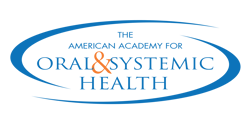Rapid Palatal Expansion: Enhancing Quality of Life for Children with Maxillary Transverse Deficiency
Presented by: Kevin Boyd, DDS; Philip Cooper, DDS; Marianna Evans, DMD
Original Presentation Date: September 24, 2021
| Take the Course | This course is available for CE Credit as a "Members Only" benefit. Not a Member? CLICK HERE to learn more about AAOSH Membership. |
Course Description:
This course delves into the evidence-based benefits of Rapid Palatal Expansion (RPE) interventions for improving the quality of life (QOL) in children diagnosed with Maxillary Transverse Deficiency (MTD). Drawing from a multitude of published papers in PUB MED journals highlighting the significant QOL enhancements resulting from RPE interventions, participants will explore the medically defensible and scientifically-supported recommendations for addressing MTD, regardless of the presence of a posterior crossbite, during the primary/early mixed dentition phase. Despite potential peer pressure from orthodontist colleagues advocating for delayed treatment, this course emphasizes the rationale and efficacy of early intervention, aiming to equip dental professionals with the knowledge and confidence to advocate for timely RPE treatment for children with MTD. Participants will acquire the skills to make informed and evidence-based recommendations for RPE intervention to enhance the quality of life for children affected by MTD, fostering improved patient outcomes.
Learning Objectives:
- Evaluate and interpret the wealth of published literature available in PUB MED journals elucidating the improvements in quality of life associated with Rapid Palatal Expansion (RPE) interventions for Maxillary Transverse Deficiency (MTD), empowering dental professionals with a comprehensive understanding of the evidence supporting early intervention.
- Analyze the medical and scientific justifications supporting the recommendation for treating MTD, irrespective of the presence of a posterior crossbite, during the primary/early mixed dentition phase, navigating through potential pressures from orthodontist colleagues advocating for delayed treatment.
